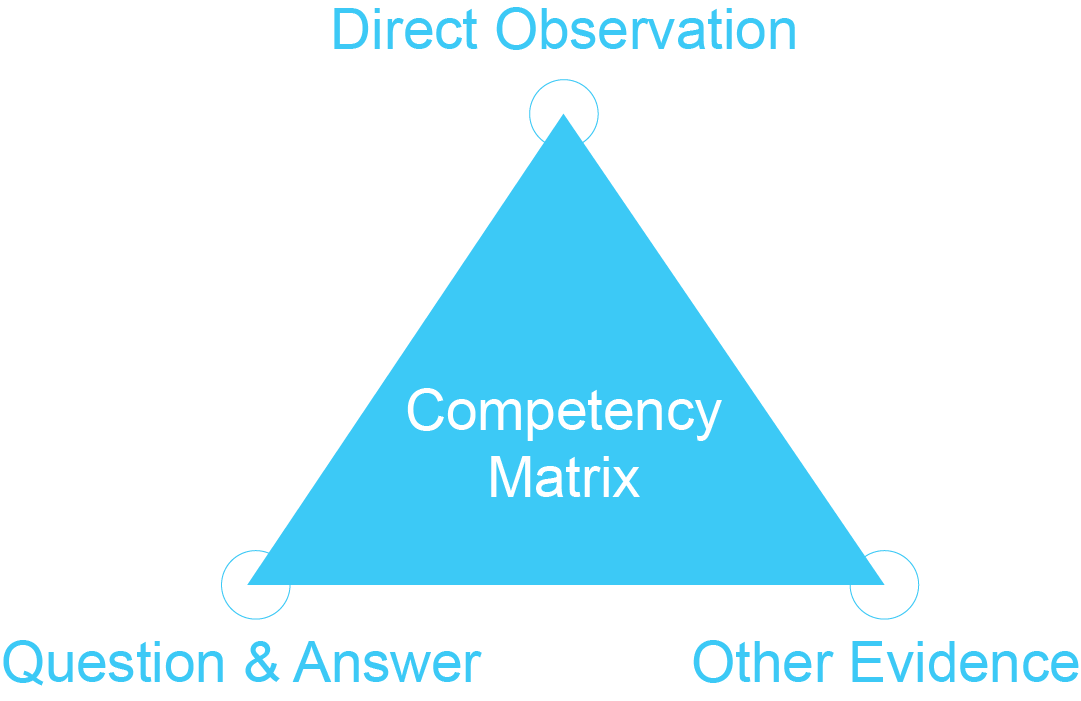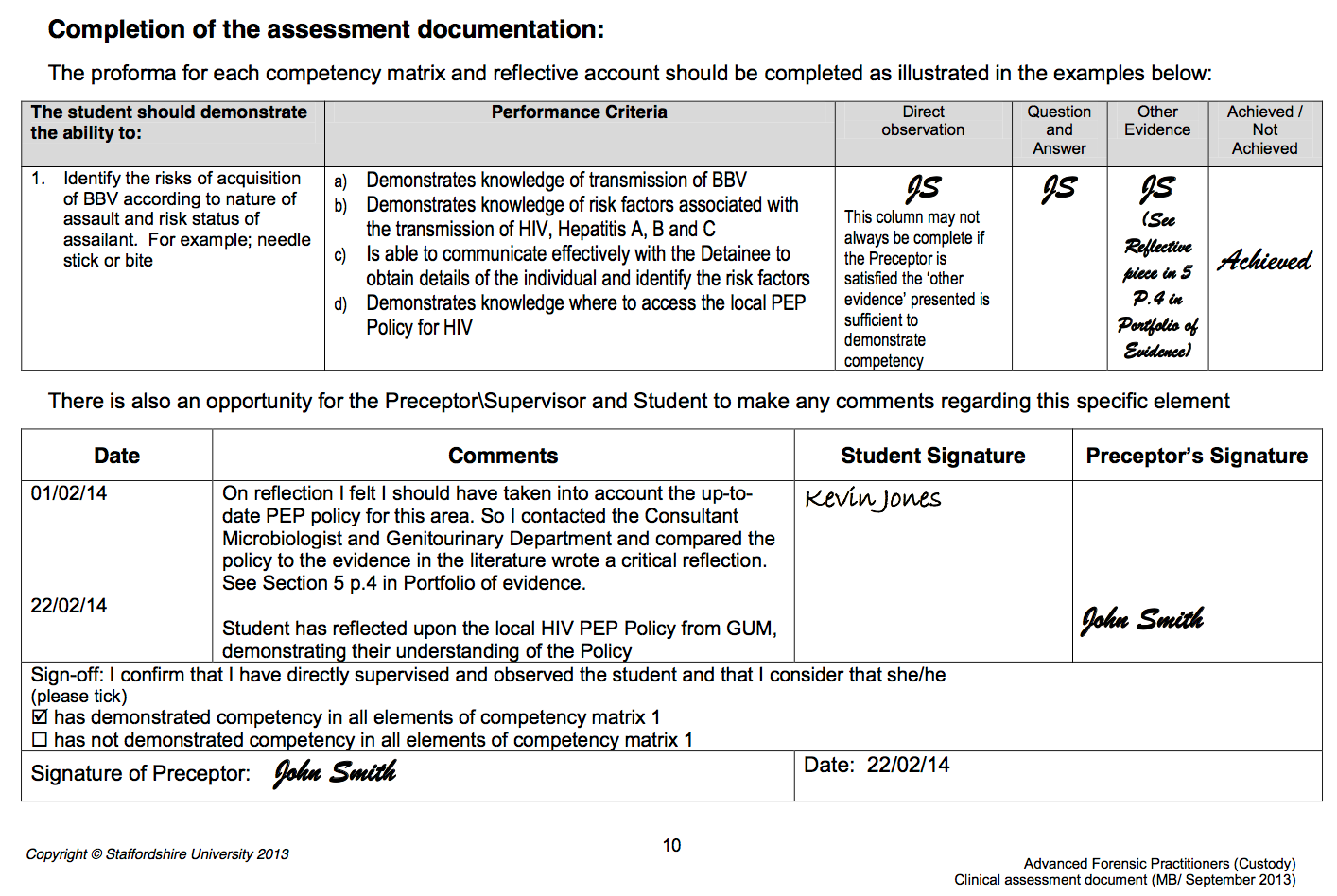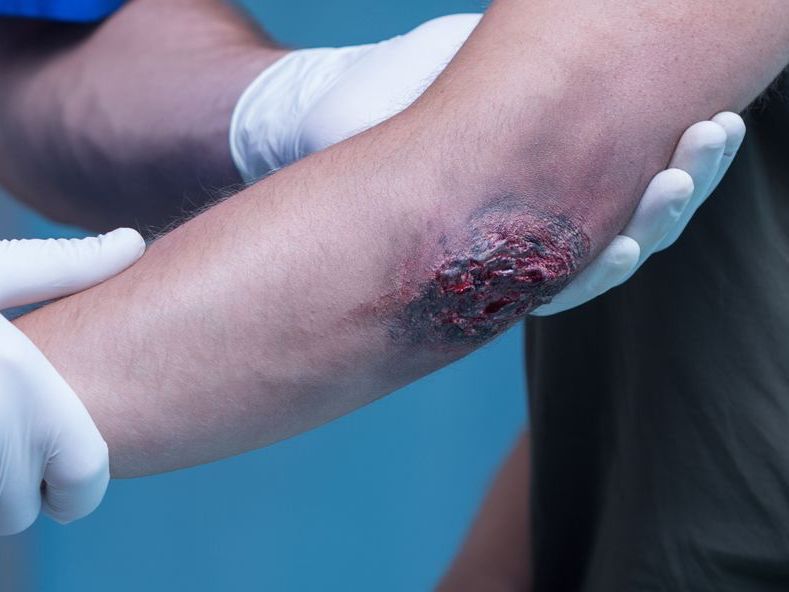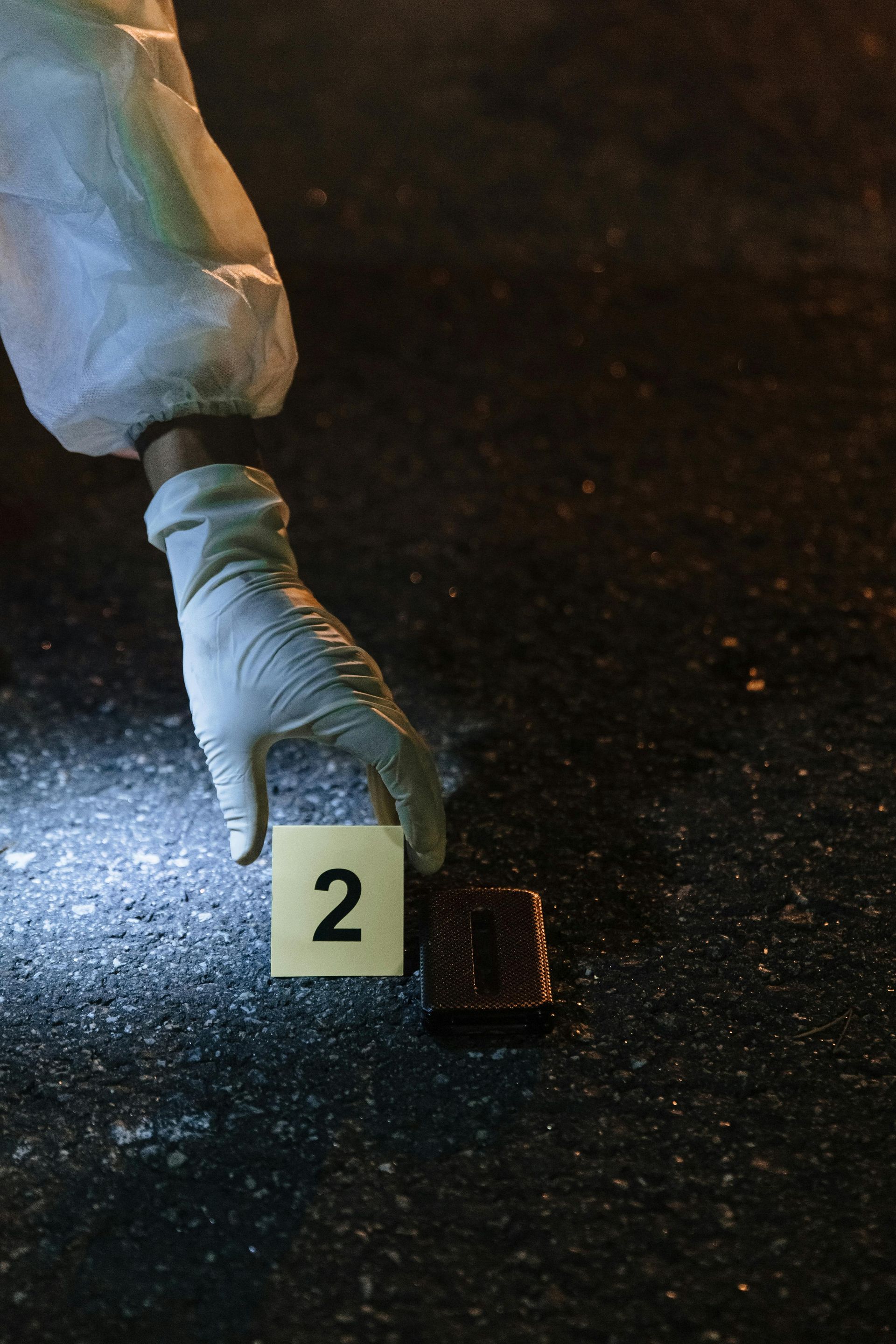Advanced Standards for Education and Training in Forensic Practice
Introduction
Any higher education institute offering the UK Association of Forensic Nurses & Paramedics (UKAFNP) approved Advanced Standards in Education and Training in Forensic Practice (ASET) course must include certain criteria. This includes an assessment of;
- Written and oral testimony in Court
- Practical and theoretical knowledge around forensic science
- Clinical practice using the ‘Advanced Clinical Forensic Practice Competencies’ document
The Advanced Clinical Forensic Practice Competencies have been developed in accordance with guidance from the following documents;
- FFLM Quality Standards
- Skills for Justice Custodial Care National Occupational Standards (SfJ, 2006)
- RCN Principles of Nursing Practice (RCN, 2010)
- RCN Nursing in Criminal Justice system (RCN 2009
- Knowledge and Skills Framework (DH, 2004)
The following individuals have contributed to the development of the competencies:
- Jo Delaforce – Co-Founder of the United Kingdom Association of Forensic Nurses & Paramedics (UKAFN)
- Gwyneth Hearn – Matron of Sexual Health and Haematology Kings College Hospital NHS Foundation Hospitals Trust
- Susan Fewkes – Forensic Nurse Practitioner, Kent Police
- Dr Vanessa Webb – Medical Director of Nurture Health and Care Ltd.
- Barry Wardle – Senior Lecturer in Advanced Clinical Practice, Staffordshire University, Faculty of Health
- Margaret Bannerman – Senior Lecturer in Sexual Health, Staffordshire University, Faculty of Health
The Advanced Clinical Forensic Practice Competencies document is a formal record of the student’s assessment of clinical practice. It will assess your knowledge, skills and attitudes as well as reflection on key issues relating to the achievement of the competencies. It is a vital document and it should be made it available to the preceptor or supervisor(s) at all times.
The competencies relating to key areas of practice and associated activities provide a framework for the learning experience. As a forensic practitioner, it is expected they use their judgment in order to assess an individual’s immediate health needs and carry out forensic examinations and interventions, whilst also being cognizant of the legal implications of working with a Detainee in a Custody setting or a victim in a sexual assault setting. The role of a forensic practitioner requires unique knowledge and skills in the collection and recording of evidence, forensic examinations and recognising injuries. The management and care of both a detainee and a sexual assault victim right through from the initial contact to possible legal proceedings requires a high level of competence.
The competency document has been approved as one of the key component of UKAFN’s Advance Standards in Education and Training in Forensic Practice (ASET) and as such, successful students who fulfil the criteria of ASET, will also receive a UKAFN ASET Certificate.
In order to successfully complete the module, students must achieve all elements of the competencies. It is expected the majority of learning will take place in the student’s resident place of work. However, students may negotiate opportunities to work in an alternative environment of care, for example, a mental health environment or Accident and Emergency Department (A&E).
method of assessment
Throughout the student’s clinical practice they will be guided and supported by a designated Preceptor or supervisors(s). Who’s role is to provide an individualised learning pathway; promote the development of clinical skills and provide direction and supervision in the achievement of competencies.
The assessment of clinical practice requires evidence to support the achievement of the competencies. Each competency will be assessed by three compulsory methods as indicated in the diagram below:

Role of the Preceptor
It is the student’s responsibility to identify an appropriately qualified and updated preceptor who meets the UKAFN criteria for appropriate practice assessor. The preceptor will sign the assessment documentation to confirm the achievement of each competency. The preceptor will be expected to:
- Work with you for a reasonable amount of time commensurate with your ability and experience to facilitate your achievement of competency
- Undertake the responsibility and accountability for completion of the assessment documentation
- Initial any alterations on the assessment documentation
- Complete and sign the final interview sheet
During your practice experience, it is important for the student to work with and learn from other health professionals. In addition to working with the preceptor, they may also be assigned a supervisor(s) who will also play a significant role in their learning. However, the preceptor is responsible for signing off each competence and the final declaration of competence. The assessment process can be informed by the opinion of other health professionals.
Competency domains
- First contact
- Initial assessment
- Holistic Assessment of the complainant/detainee
- Collection and storage of the Forensic Samples
- On-going management of the complainant/detainee
- Complainant/detainee comfort and psychological Care
- Presenting evidence for the Criminal Justice System
- Health, safety and security
- Professional Conduct
- Leadership Core Competencies
- Development of Clinical Practice
- Teaching and Supervising

AVAILABLE ASET COURSES
PGCert Advanced Forensic Practice

Clinical Assessment for Advanced Forensic Practice
(20 credits) (School of Health Sciences)
Legal Skills for Health Care Professionals
(20 credits) (School of Law and Criminology)
Leading and Managing Complexity for Care in Custody / Sexual Offences Services
(20 credits) (Health Sciences)
All Rights Reserved | UKAFNP.org |Design & Build By Kangaroo UK




